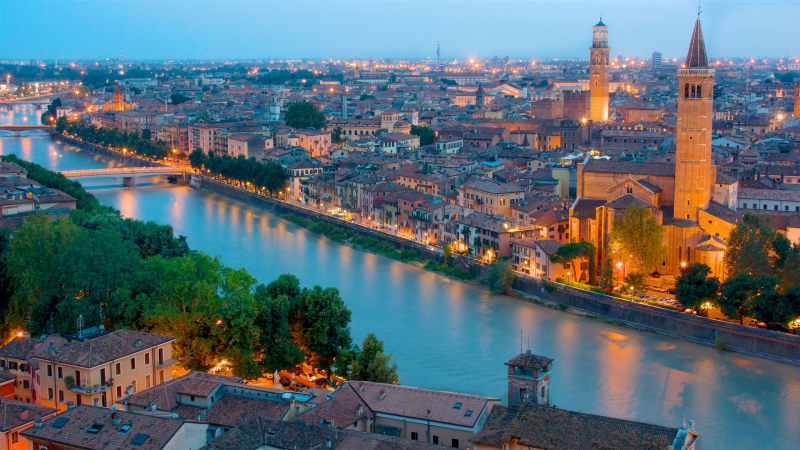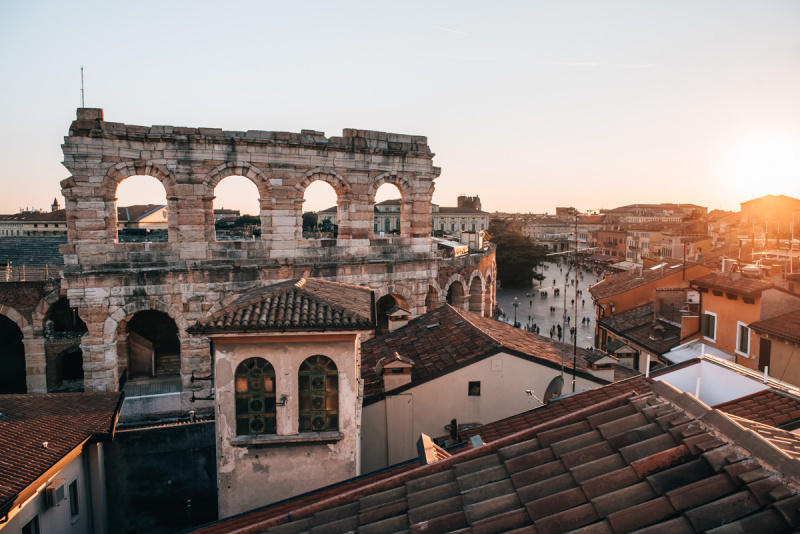Verona
Verona is a city on the Adige River in Veneto, Italy, with 258,031 inhabitants. It is one of the region's seven provincial capitals. It is the largest city municipality in the region and the second largest in northeastern Italy. Because of its artistic past and various annual fairs and shows, as well as the opera season in the Arena, a historic Roman amphitheater, it is one of the most popular tourist attractions in northern Italy.
The Della Scala Family governed the city between the 13th and 14th centuries. The city prospered under the control of the family, particularly Cangrande I Della Scala, becoming rich and strong and enclosed by new walls. Numerous monuments from the Della Scala era may be seen in and around Verona. UNESCO designated the city as a World Heritage Site in November 2000 due to its urban organization and architecture.
Verona, located roughly halfway between Milan and Venice, is one of Italy's most popular tourist destinations, with visitors enjoying its art, architecture, opera, and literary prominence. Because Verona is frequently eclipsed by its more beautiful neighbor, Venice, tourists frequently try to explore it in a single day, although there is so much to do here. Verona draws a diverse crowd of tourists to its charming piazzas and maze of streets. Verona is also a thriving city, with its core dominated by a massive, amazingly well-preserved 1st-century amphitheater, which hosts the city's annual summer opera festival. Add to it a plethora of churches, a couple of architecturally noteworthy bridges across the Adige, Veneto hinterland wine and food, and some excellent art, and Verona emerges as one of northern Italy's most appealing cities.
Location: Veneto, Italy












